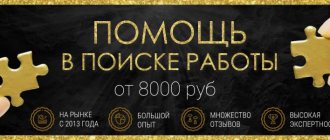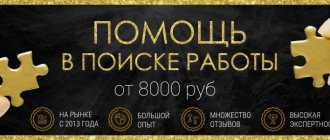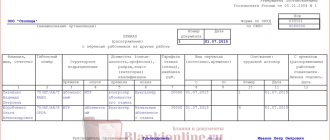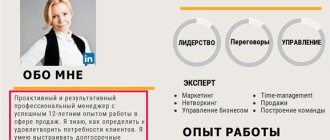Good day, dear guests of my resource. Today I decided to tell you about another way to earn income on the Internet - translation activities. Yes, the profession of a translator is in demand mainly in real life, but you can also earn quite decent money online by speaking foreign languages. A good linguist will always find a clientele willing to adequately pay for his work. Knowledge of any language, from the most common to the rare, can feed well. I will tell you about what the work of a translator is, how to become one and where to look for customers. If you have at least some linguistic skills and are willing to work tirelessly to develop them, you will probably soon be able to earn money by translating. It's up to you to choose whether you do it in real life or online.
The essence of professional activity
The activity of a translator is to translate spoken or written speech from one language to another. It is very diverse and multifaceted, because there are many areas of translation activity.
Firstly, translations are divided into:
- Written . In this case, the translator’s work is static: he has a ready-made text in front of his eyes and translates it into another language. Online translators usually deal with this type of work.
- Oral . Among oral directions, two main types can be distinguished: synchronous and sequential. The first type is considered more complex, since translation is carried out simultaneously with the speaker’s speech, and the specialist does not have time to comprehend what has been said. As a rule, simultaneous translation is one-way, since there is no dialogue. During consecutive interpretation, a specialist first listens to the speaker and then presents his speech in another language. The listening segment can be anything from a couple of phrases to a half-hour speech. In this case, speech can be somewhat shortened or transformed in another way, so the sequential version is more creative and meaningful than the synchronous one. Sometimes during negotiations, a specialist has to select appropriate foreign language idioms or soften overly harsh statements, which is considered aerobatics. It should be taken into account that the speaker’s speech may be monotonous, illiterate and completely unintelligible, but this should not affect the quality of the translation.
Secondly, according to the nature of the source material, translations are distinguished:
- Literary . This is how works of art of various genres (poetry, prose, drama) are translated. At the same time, it is important to preserve all the advantages of the original: multiple layers of meaning, elegant form, beauty and figurative speech. A specialist must be fluent in both languages, have a developed literary taste and flair, otherwise the original masterpiece will come out flat, monotonous and devoid of artistic merit. Poetry is especially complex in this regard, relying primarily on images and feelings, having a characteristic rhythm and rhymes, rather than a plot component.
- Informative . In this case, information comes to the fore, so the translator’s task is to maintain maximum accuracy of presentation. Scientific, legal, medical, technical and other specialized texts are translated in this way. This means that the translator must not only know both languages, but also have knowledge of the relevant field (it will not be possible to correctly translate a text dedicated to the section of nuclear physics without the appropriate education).
Where are translators in demand?
Translation is a very ancient and respected profession: good interpreters (as linguists were previously called in Rus') were worth their weight in gold. Without an interpreter, how can you conclude a peace treaty with the ruler of distant lands or sell goods overseas? And diplomatic and intelligence services have worked at the courts of monarchs from time immemorial.
The more humanity developed, the more interethnic ties branched out and strengthened. And the development of publishing has brought the profession to a new level: knowledge of languages has become even more in demand. In the Soviet Union, translators were considered a special caste: they had every chance to travel abroad, which at that time was regarded as an unheard-of luxury.
With the fall of the Iron Curtain and the development of a market economy, the demand for translators increased even more. Despite the fact that many people now learn languages on their own (proficiency in at least English is required of any cultured person), good translators remain highly sought-after specialists.
Jobs in your specialty can be found, for example, in:
- translation agency;
- publishing houses or editorial offices of the media;
- advertising agencies;
- tourism;
- diplomatic missions;
- representative offices of foreign organizations;
- any reputable company with permanent international connections.
The demand for a specialist depends not only on his professional competencies, but also on what languages he speaks. For example, translators with English and other common European languages are most in demand, but the highest demands are placed on their level of professionalism. There are a lot of mediocre linguists, so getting a job as a purely translator (and not a specialist with knowledge of the language) is problematic. But sinologists and other “Easternists” are so far being snapped up like hot cakes: not all companies cooperating with manufacturers from the Middle Kingdom (and there are many of them) are satisfied with automatic translation of the level of product descriptions on Ali Express.
General recommendations for preparing a translator's resume
The purpose of the questionnaire is to provide HR officers with information that employers are interested in:
- Basic and additional education according to the profile.
- Experience in the specialty.
- Job title.
- Willingness to travel and change place of residence.
- Optimal schedule.
- Appearance (photo).
- Professional competencies (skills).
The completed template should contain information that will help you quickly contact the applicant to ask additional questions and invite you to an interview.
Required qualities
The work of a translator is very interesting: there is no place for monotony in his work. Even when working on a dry scientific text, you have to select the most adequate synonyms and constantly keep a thousand things in your field of attention. After all, it practically never happens that the original completely lacks constructions inherent in living colloquial or literary speech. What can we say about the translation of works of art, which require remarkable literary talent?
So, a professional translator, depending on the field of activity, must have the following qualities:
- perfect knowledge of two or more languages;
- high level of general erudition;
- certain specialized knowledge (more for informative translations);
- literary gift and sense of style (for literary translations);
- communication skills, stress resistance, quick response, ability to adapt to any circumstances (interpreters);
- desire for self-improvement (language is not a frozen structure, it is constantly changing);
- perseverance and ability to work with large amounts of information (written versions).
A good linguist always has the opportunity to choose a priority direction. If you love communicating with people, learning new things and traveling, it is better to specialize in interpreting. And if you are interested in calm work with text, without stressful situations and the need to make instant decisions, it is better to take up written translations, perhaps even on the Internet.
What kind of education should there be?
What is needed and sufficient to work as a translator - secondary, higher or industry education (secondary/related)? Much depends on the specialist’s preferred area of future employment. If you want to devote yourself completely to foreign languages, you should give preference to classical linguistics:
- A bachelor's degree is a sufficient basis for employment in a serious company;
- a master's qualification is already a prerequisite for working with important texts and participating in negotiations;
A college diploma in hotel service or sports or restaurant management is an opportunity to “try out” the profession, decide whether to become a translator or take a different path.
How to become a translator
Ideally, a translator is a specialist with a higher linguistic education who has graduated from a university and received an appropriate diploma. There are many linguistic universities in Russia, so if you want to get such a prestigious specialty, there are no special obstacles. However, you need to take into account the above: with an average knowledge of a couple of European languages and nothing else under your belt, it is problematic to get a well-paid job. This explains the fact that competition for faculties of oriental languages is now much higher.
Translators of highly specialized texts can rarely boast of a linguistic education (at most, it is their second education, received after their main specialty). As a rule, these people learn foreign languages on their own or in special courses (there are narrowly focused options, such as “English for business, law, medicine”).
There is now no shortage of options for learning foreign languages at any level. There are a huge number of different linguistic programs, and the ones that work best are those that involve immersion in the appropriate language environment. This is why linguistic camps and schools abroad are so popular, where people are forced to completely switch to communicating in the language they are learning for a while. A couple of weeks without the opportunity to communicate in their own language - and a person masters a foreign language from scratch to a confident everyday level (he is forced to do this, otherwise his needs will remain unsatisfied).
Not everyone has the time and money to travel abroad, but it is quite possible to find decent courses at home. Another option is to communicate with a native speaker via Skype. You can even find a mutually beneficial option: you help him learn Russian, and he helps him learn his native language. By the way, this option is ideal for specialists: you can find a colleague (doctor, lawyer, economist, etc.) abroad at an international professional forum. Exchange contacts and communicate usefully to learn languages with a professional focus!
Translations on the Internet
A translator can work not only in the office, but also on the Internet. For obvious reasons, written translations are most in demand on the Internet, but there are also alternative offers (even real-life oral translation).
Almost all linguists working for publishing houses and translation agencies work from home, receiving assignments and sending the results of their work by e-mail. If you are happy with this prospect, I recommend that you write your resume correctly and send it to potential employers. If any of them are interested in your candidacy, most likely, you will be asked to complete a short test task. If you handle it well, you can count on constant job security and a comfortable life.
To work on the Internet, it is not necessary to have a certified translator profession, because to become a freelancer, confident real linguistic skills are enough. What can I say: some “specialists” do without it: automatic translation and well-made adaptation sometimes work wonders. Of course, you won’t earn a lot of money this way (the quality is obvious), but some manage to work for a long time and quite successfully using this scheme. If you have the appropriate intelligence, simple texts and knowledge of your native language, of course.
A competitive translator is a combination of meeting what requirements
For these reasons, our university has developed not only a program for translation specialists - experts qualified in all types of translations - but also supplemented with professional language training courses in industry training in sports management, hotel/restaurant service, and network administration. Being in continuous dialogue with representatives of large international companies, we already know how to become a good translator.
This requires effectively combining desires/ambitions with existing opportunities and skills that vocational education provides. The formula for success in this case could look like this:
- knowledge base acquired in a specialized course;
- a combination of important personal qualities of a translator;
- level of proficiency in self-discipline skills (perseverance, ability to maintain attention for a long period of time, competent tactics for processing voluminous material, and much more).
How to start earning money?
If you intend to try yourself in this activity “on free bread”, you should start your career on one of the virtual exchanges, because it is quite difficult to look for customers on your own at first.
So, I recommend paying attention to the exchanges:
- Translations. On specialized translation exchanges, orders are most abundant, but appropriate competencies are required (usually a test task is offered for the level of mastery). There are Russian-language platforms of this type: Tranzilla (there are orders for interpretation, including in-person, mainly in large cities), Perevod01 (highly specialized texts for every taste), Perevodchik (oral, written, audiovisual translation and editing). Among the international platforms it is worth mentioning 2polyglot, Proz and Gengo. At international sites, the pay is usually higher, but the corresponding requirements are at the carrier level.
- Text content. A number of text content exchanges (including the recognized flagships Etxt and Advego) provide for this type of work such as written translation. There are not very many orders (compared to copywriting and rewriting work), but they do occur. In most cases, the feed publishes very simple orders for beginners (low-paying, but ideal for practicing skills).
- Freelancing. Freelance exchanges (Kwork, Freelance,) and others offer remote services of specialists in various fields. Each of them has a “Translations” (or similar) section where the corresponding orders are placed. The pay is very different, the competition for common languages is high, so I recommend training your skills and improving your profile on simple accessible tasks or purchasing a privileged paid account.
Personal qualities of a translator for a resume
The set of personal qualities that are most important for a translator is to a large extent determined by the specifics of the work.
If the desired position involves not only translation, but also, for example, coordinating the actions of other translators or monitoring the quality of the work they produce, organizational skills, self-demandingness, and the ability to communicate with people come to the fore. If you plan to work remotely, such a quality as the ability to self-organize becomes important. Written translation, especially when it comes to large volumes of information, requires perseverance, the ability to perform monotonous and monotonous work, and concentrate on the work without being distracted by anything. Think about what qualities you have that are most important for the position you are applying for.
.
Examples of personal qualities in a translator’s resume:
- Communication skills.
- Responsibility.
- The desire for self-development and professional growth.
- Determination.
- Perseverance.
- Demanding on yourself.
- Result oriented.
- Ability to work in emergency mode and with large volumes of information.
- Easy to learn.
- High level of self-organization.
- Ability to concentrate on achieving a goal.
- Attentiveness and accuracy.
We will be glad if the sample translator resume that we have prepared will help you create an excellent resume and successfully get a good job. By the way, you can quickly create your resume using our template.
Tips for beginners
If you decide to try yourself as an online translator, it would be a good idea to listen to practical advice:
- Start with English. If you have not yet decided whether you should engage in professional translation, I advise you to start by studying the language of international communication, English. With him you can always find some orders, and if something happens, knowledge of English will definitely come in handy in life, at least for communication.
- Work hard. You will have to start with low-paying orders - this happens in 99% of cases. The only exceptions are the lucky ones who speak less common languages, who immediately manage to get in touch with customers who need just such specialists.
- Constantly raise the bar. The cheapest order should be executed perfectly: you will receive an increase in rating, positive feedback, and natural account upgrades. They will start recommending you to other users, so you shouldn’t stagnate at the “newbie” stage: if you see that customers are lining up for you, gently raise your prices. And improve your own linguistic competencies, of course.
You can start working as a freelance translator early, while still in school. You will earn at least some money and gain invaluable experience that will help with admission and further job searches.










